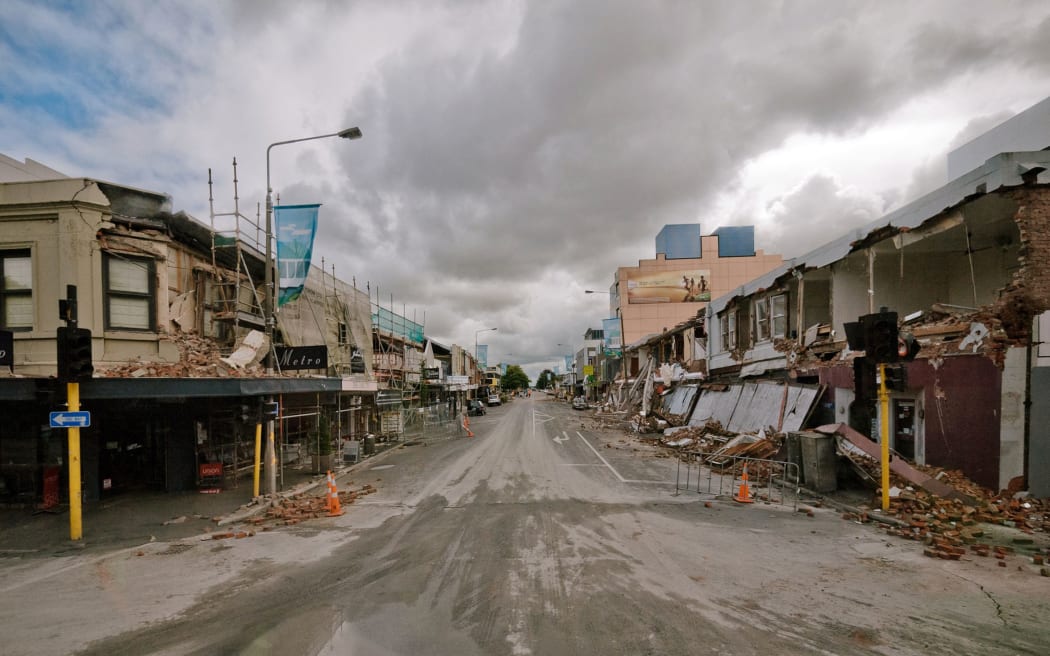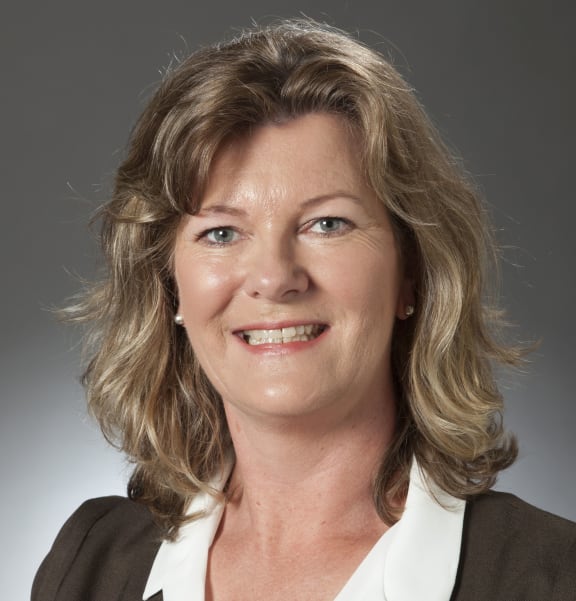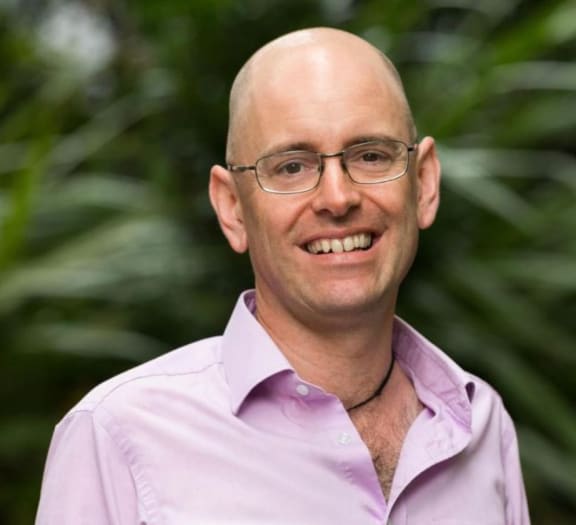The Canterbury earthquakes in 2010 and 2011, and subsequent large shakes, have drawn attention to short-comings in the way our legal system deals with disaster.

Rubble and damaged buildings line a deserted Colombo street in central Christchurch after the quake. Photo: AFP
Subscribe to Our Changing World for free on Apple Podcasts, Spotify, Stitcher, iHeartRADIO, Google Podcasts, RadioPublic or wherever you listen to your podcasts

Toni Collins is a law expert at the University of Canterbury. Photo: University of Canterbury
Toni Collins and John Hopkins are used to raised eyebrows when they attend meetings with their QuakeCore colleagues.
The pair are lawyers at the University of Canterbury, whilst their colleagues are scientists and engineers.
But all of them are interested in creating a society that is more resilient when it comes to dealing with disasters, and Toni and John say that a strong well-designed legal system is an important aspect of that.
“A legal system is really just the way society organises itself,” says John.
John says that disasters are commonly misunderstood.
“When people think about a disaster they think about an earthquake or a volcano, a tsunami or even a health event. But that’s not the disaster – the disaster is a social event.
“The volcano that erupts when no one is there is not a disaster,” says John.
“Disasters are an interaction between the hazard and what vulnerabilities you have in your society.”
In Christchurch in 2011, he says, the vulnerabilities were a city built on a swamp and the way buildings were constructed.
Disaster law

John Hopkins is a law expert at the University of Canterbury. Photo: University of Canterbury
Disaster law is a relatively new field which Toni says began to develop over a decade ago.
She says lawyers involved in this field are keen to ensure societies are well-prepared for possible future disasters.
Internationally, the International Federation of Red Cross and Red Crescent Societies’ Disaster Law Programme, which “seeks to reduce human vulnerability by promoting legal preparedness for disasters through advocacy, technical assistance, training and research”, drew up International Disaster Law Guidelines which have been adopted by all signatories to the Geneva Convention.
“The law should be prepared”
One of Toni’s research projects involved the situation following the 2011 Christchurch earthquake where tenants of useable buildings in the central city Red Zone found themselves still liable to pay rent on premises they could no longer access, often in addition to paying rent on new premises.
“Their leases did not cover what should happen if their buildings were inaccessible,” says Toni. “And the Property Law Act didn’t provide for it either.”
This situation hadn’t been foreseen and there was no legal framework for dealing with it.
Toni says that in the past the law has been reactionary in situations like this, whereas disaster lawyers advocate being better prepared with well thought-out legal frameworks.
Listen to the full story to hear John and Toni talk about the legal situation around New Zealand’s response to covid-19, and why Pacific Island nations such as Fiji have a centralised response to disaster that New Zealand could do well to learn from.
More earthquake stories from Our Changing World
When the ground starts shaking – GeoNet turns 15
Complexity – six months of Kaikōura earthquake science
When the Kekerengu Fault ruptured
Buildings that better survive earthquakes
Understanding New Zealand’s largest fault
Bull kelp genes and earthquake uplift - a surprising connection
High-rise apartments in central Wellington and earthquake strengthening issues
A decade of earthquakes - Darfield. Christchurch. Cook Strait. Kaikōura. In the past decade, New Zealand has experienced four major earthquakes. Three GNS Science seismologists recollect their experience of the Big Ones and talk about the lessons we have learned from these ten shaky years.
Preparing for the next big quake - University of Canterbury earthquake engineer Brendon Bradley says we can’t predict when and where earthquakes will occur, but “we do have probabilistic models that tell us the likelihood that certain faults are going to rupture over a certain period of time.”
Designing low damage buildings - Low-damage buildings don't just save lives in an earthquake, says Geoff Rodgers - they are designed to be resilient so they can stay in use.
What we do during an earthquake and why it matters – David Johnston says that when it comes to earthquakes, sometimes doing nothing is a safer option than taking the wrong action.
Liquefaction: lessons from the 2011 Christchurch earthquake - Misko Cubrinovski has spent his professional career studying liquefaction caused by earthquakes, but even he was surprised by how widespread and extensive the effects of liquefaction were following the 2011 Christchurch earthquake.
Disaster law - John Hopkins and Toni Collins explain disaster law and shortcomings in NZ's legal system highlighted by the Canterbury earthquakes.


